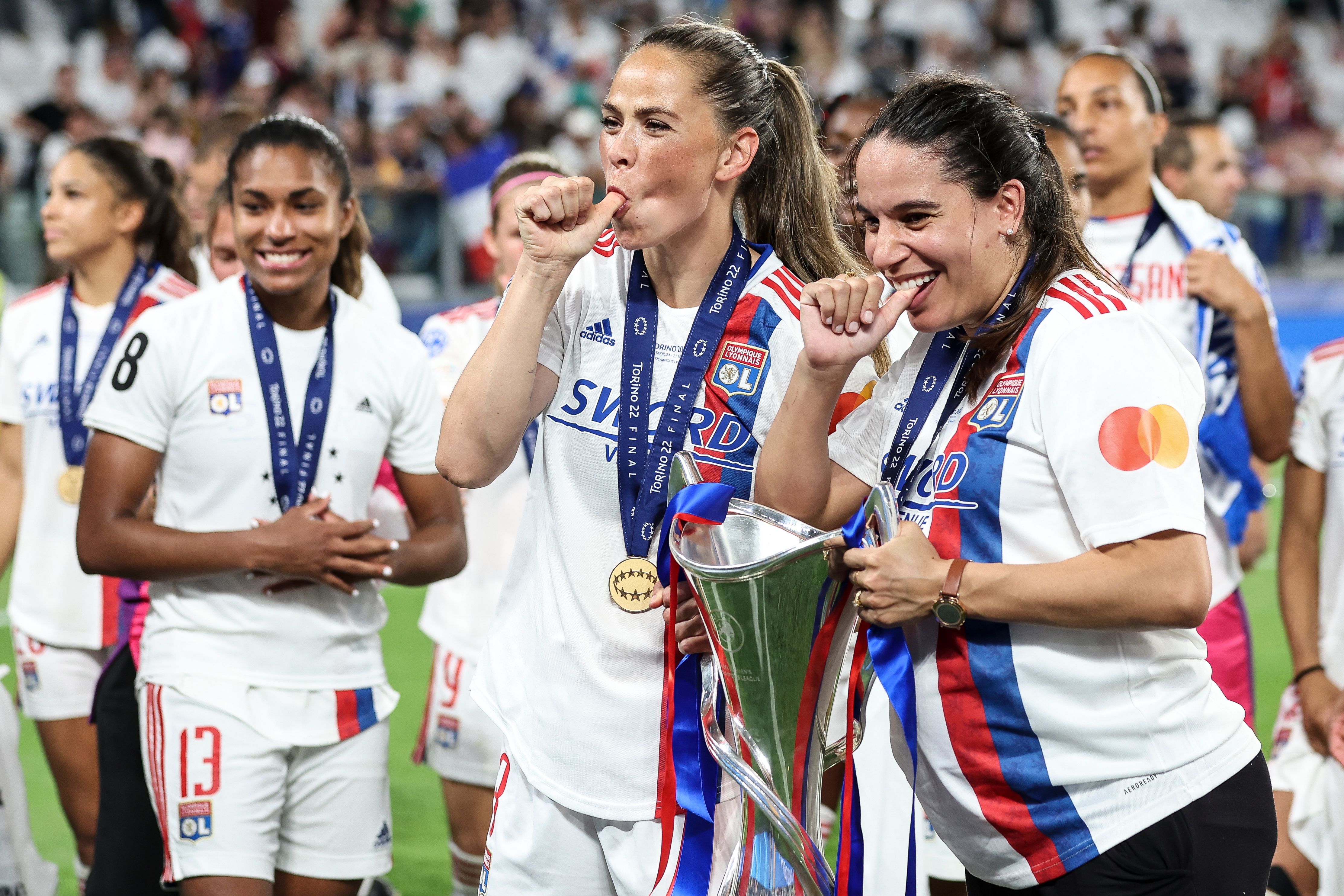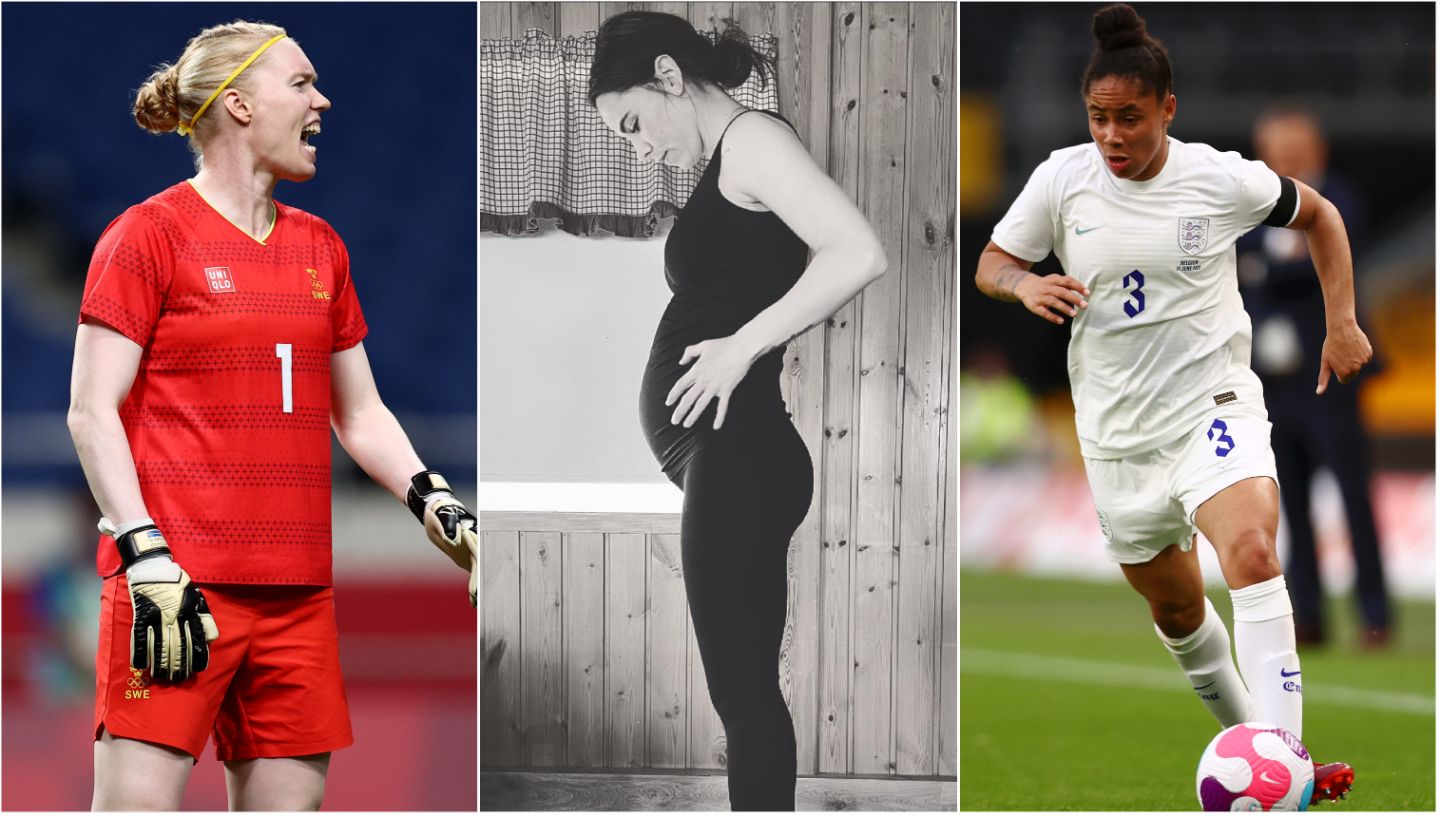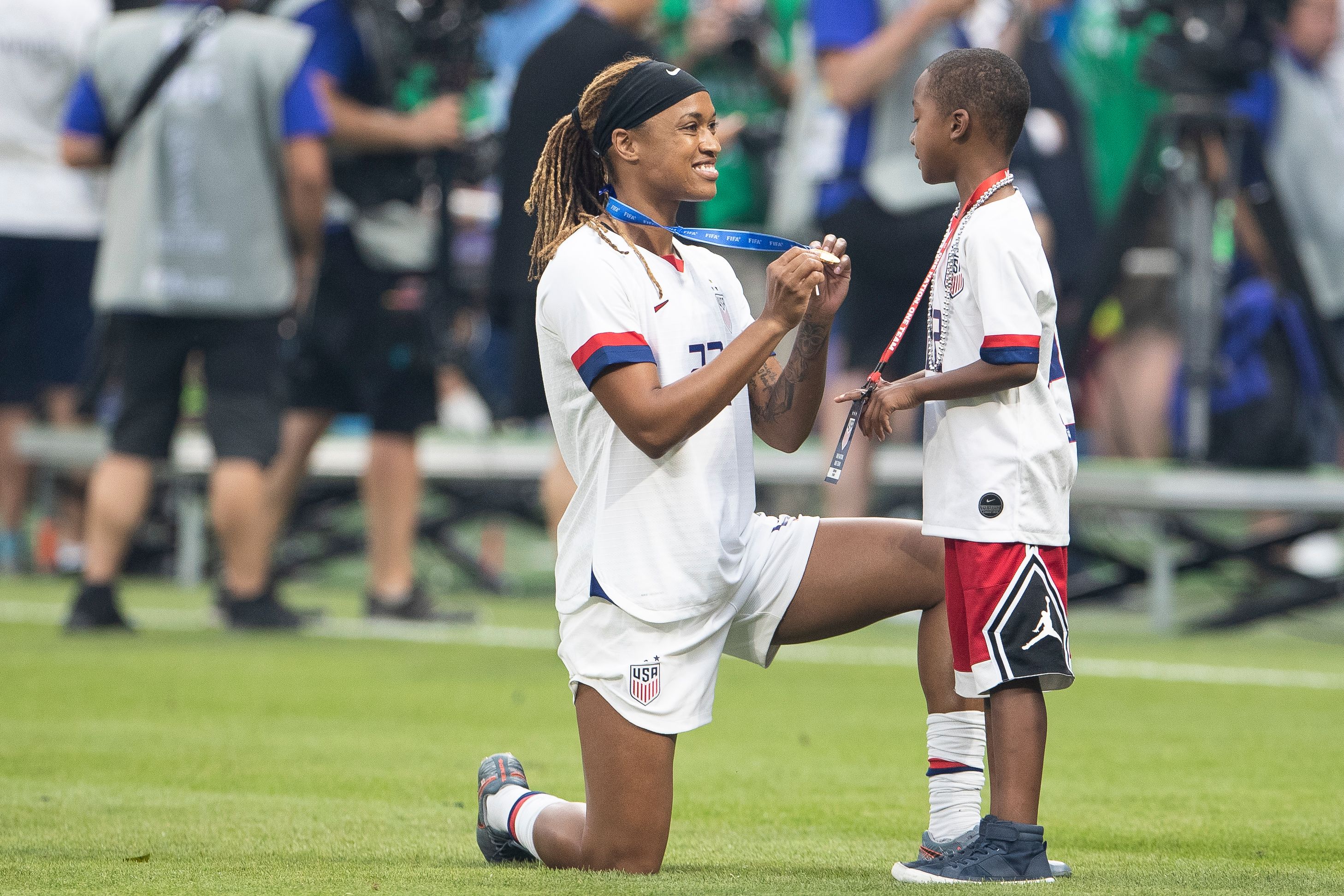With kick-off just one week away, anticipation for Euro 2022 is growing. Players will be making last-minute preparations and managers will be fine-tuning their starting lineups. For some players, they will be saying goodbye to their children as they get ready to spend the majority of the next four weeks with their teammates. In fact, there will be more mothers playing at the Euros than ever before. Iceland have five mothers in their squad – Sara Björk Gunnarsdóttir, Dagný Brynjarsdóttir, Sif Atladóttir, Sandra Sigurðardóttir and ElÃsa Viðarsdóttir.Other players at the tournament with children include Belgium's Lenie Onzia, the Netherlands' Sherida Spitse and Stefanie van Der Gragt, England's Demi Stokes, Sweden's Lina Hurtig, Hedvig Lindahl and Elin Rubensson, and Germany's Almuth Schult. The percentage of mothers at Euro 2022 may be relatively small, but it is a significant increase from previous years, demonstrating the changing attitude to female footballers who want to start a family. 
Motherhood in women’s football
In 2019, Racing Louisville FC forward Jessica McDonald was part of the United States team which triumphed at the Women’s World Cup. The world watched on as her seven-year-old son poured confetti over her head and posed for a photo with the trophy.
It appeared as if McDonald’s son, Jeremiah, was an accepted part of her football career. But this wasn’t always the case.
After she gave birth in 2012, McDonald found she was often judged for being a mother.
"I've had plenty of coaches who weren't parents, which made it even more difficult for me, so there were times when I had a bad training session or a bad game, just like any normal player would have, and sometimes I get it thrown at me that my kid is the distraction," she told BBC Sport.
"It hurt me badly. My kid was the reason I was out there."
Icelandic goalkeeper Guðbjörg Gunnarsdóttir was well aware of such attitudes when she decided to start a family.
She had already put this off until her thirties so she didn’t jeopardise her career, and then kept three years of IVF a secret from her coach and teammates.
Guðbjörg even faked an injury to cover up the physical impact the procedure was having on her, before rushing back to football after eventually giving birth to twins.
"I felt like the club thinks you're not going to put football number one," she told BBC World Service Sport.
"Of course football is number two, and I think it's so unfair because if you look at men's football, it's a positive thing if a male football player has children because then they look at him as a family man.
"It's only negative for women because you're not playing and then you have to take care of the kids, you gain weight, they don't know about your form. If you come back really early, you get questioned - are you a good mum?"
Indeed, in 2017 world players' union FIFPRO found that just 2 percent of players were mothers, with many women quitting football because of a lack of maternity policies to support them.
Attitudes slowly changing
Attitudes towards motherhood in women’s football have slowly started to change, and maternity policies have been introduced to match.
FIFA implemented new rules for maternity leave last year, with players now entitled to a minimum of 14 weeks of maternity cover, on at least two thirds of their salary.
It was announced earlier this year that Women’s Super League and Championship players would have access to 100 percent of their wage for the first 14 weeks of maternity leave.
Clubs are also "under an obligation to reintegrate" players to the club and provide "adequate ongoing medical support".
English football star Jodie Taylor, a member of FIFPRO’s Global Player Council, explained why the introduction of maternity policy was so important.
“This is such an impactful and meaningful addition to our sport,†she said.
“Women’s footballers need these types of regulations to ensure that we can continue our careers confident that adequate provisions are in place should we decide to have children, which is both reassuring for us as players and reflective of what the professional game needs to keep growing.
“Hopefully this is the beginning of even more progressive and inclusive policies for female players.â€
Motherhood at Euro 2022
So what happens when a mother plays at an international football tournament? Each national federation featuring at Euro 2022 has implemented varying policies.
For the five mothers in the Iceland squad, they can only have their children with them in camp if they are under a year old.
But the Football Association of Iceland told BBC Sport there is no blanket rule and they work with their mothers on an individual basis.
Onzia, Spitse, van Der Gragt, and Stokes will be able to see their respective children on family days, while Hurtig, Lindahl and Rubensson can see their children in their free time after the Swedish Football Association offered the opportunity for relatives to travel to the tournament together.
Brynjarsdóttir, who has a four-year-old son, is aware she will be apart from him for some time as Iceland travel to Germany and Poland for a pre-tournament camp.
She is hoping the situation for mothers in football will improve further, giving them more of a choice about having their children at camp.
"Hopefully we can make better contracts in the autumn that will suit mums better," she said. "I know some mums just like when they go to camp to take time for themselves.
"But I'd like to take him with me and I feel like it should be up to me.
"It's probably not going to be like that while I'm still playing, but hopefully for the younger generation, so it will be easier for the mums who will be here later on."
The representation of mothers at Euro 2022 will certainly show it is possible to play football at an elite level and start a family, encouraging other players to follow suit and pushing governing bodies to improve their maternity policies. The tournament is set to be a game-changer.























